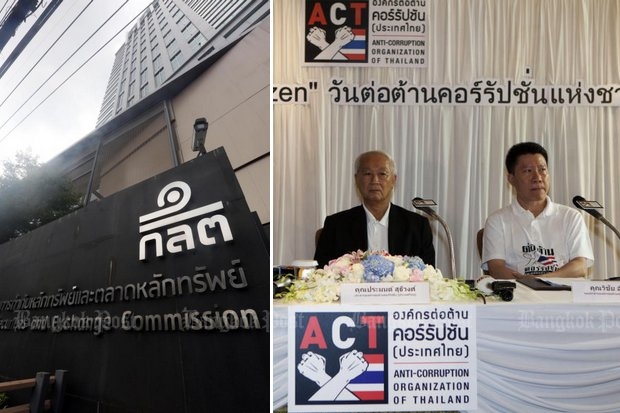
The Securities and Exchange Commission (SEC) will join the Anti-Corruption Organisation of Thailand (ACT) in its efforts to better examine the filings and accounts of companies listed on the stock exchange to ensure transparency.
It's important to ensure transparency in the operation of all companies listed on the Stock Exchange of Thailand (SET) because they are all large-sized businesses capable of competing in the bidding of major state projects and ones run by private companies, said Mana Nimitmongkol, secretary-general for the ACT.
He was speaking after meeting the SET to discuss corruption prevention among the SET-listed companies.
SEC secretary-general Rapee Sucharitakul has insisted the SEC is strictly inspecting the business operational transparency of all listed companies to deter a conflict of interest among shareholders and company executives, according to Mr Mana.
"Despite the stiff legal measures being enforced to deter corruption among executives of listed companies, which includes the act of giving and receiving bribes to and from state officials, the truth is corrupt people always look for a chance to cheat," he said.
The SEC has become more aware of the importance of business transparency among listed companies and has continued to work with anti-corruption partners in its fight against graft, he said.
Meanwhile, Somkiat Tangkitvanich, president of the Thailand Development Research Institute (TDRI), urged the government to learn from neighbouring Singapore's quick wins in curbing corruption by taking the fight to state officials and governors.
A key to Singapore's success in achieving in its past efforts to stamp out corruption was issuing a law requiring all state officials to prove where their assets are from.
In the event anyone fails to demonstrate they have obtained a particular piece of property honestly, the property will be confiscated by the state, said Mr Somkiat.